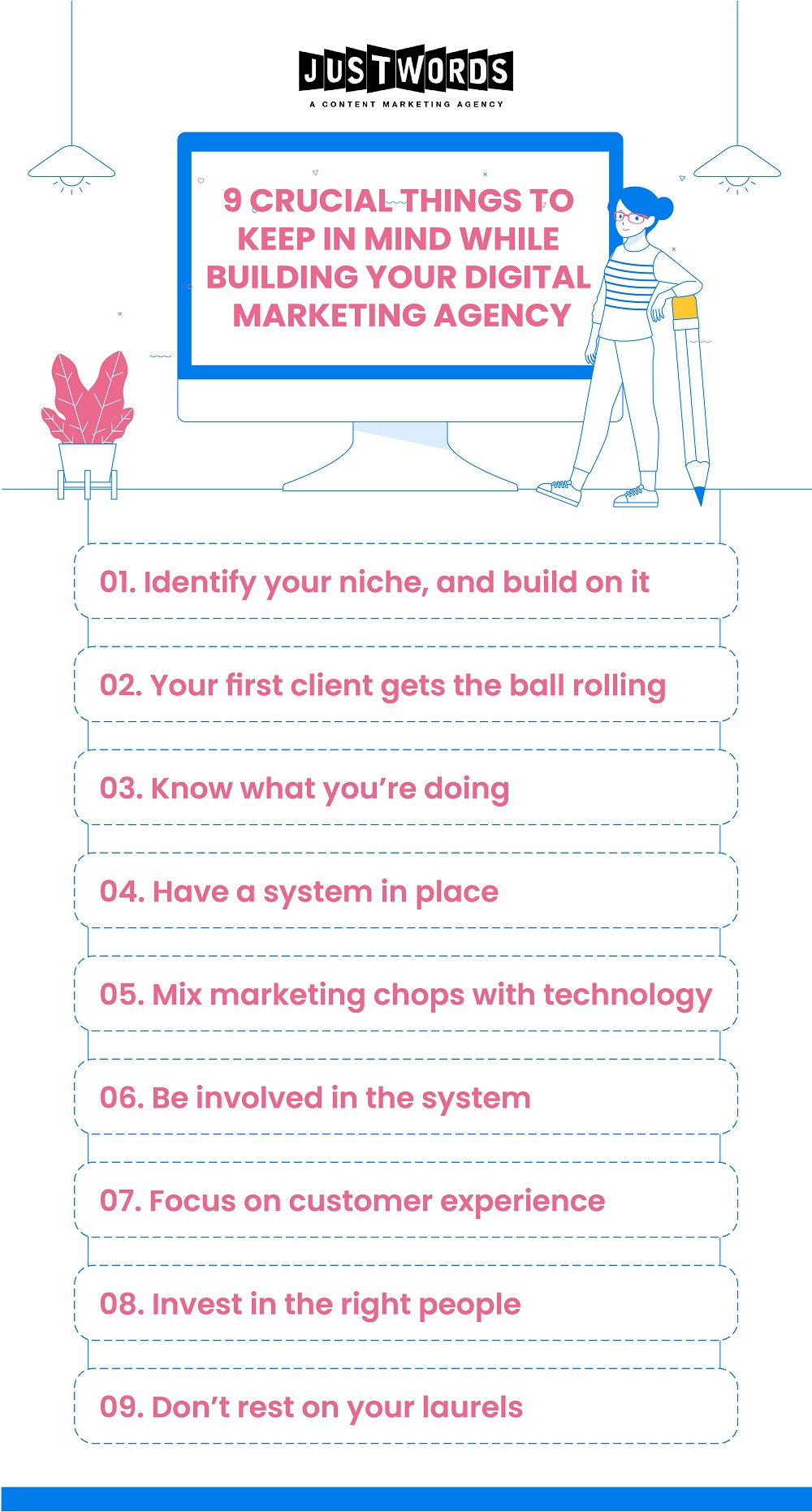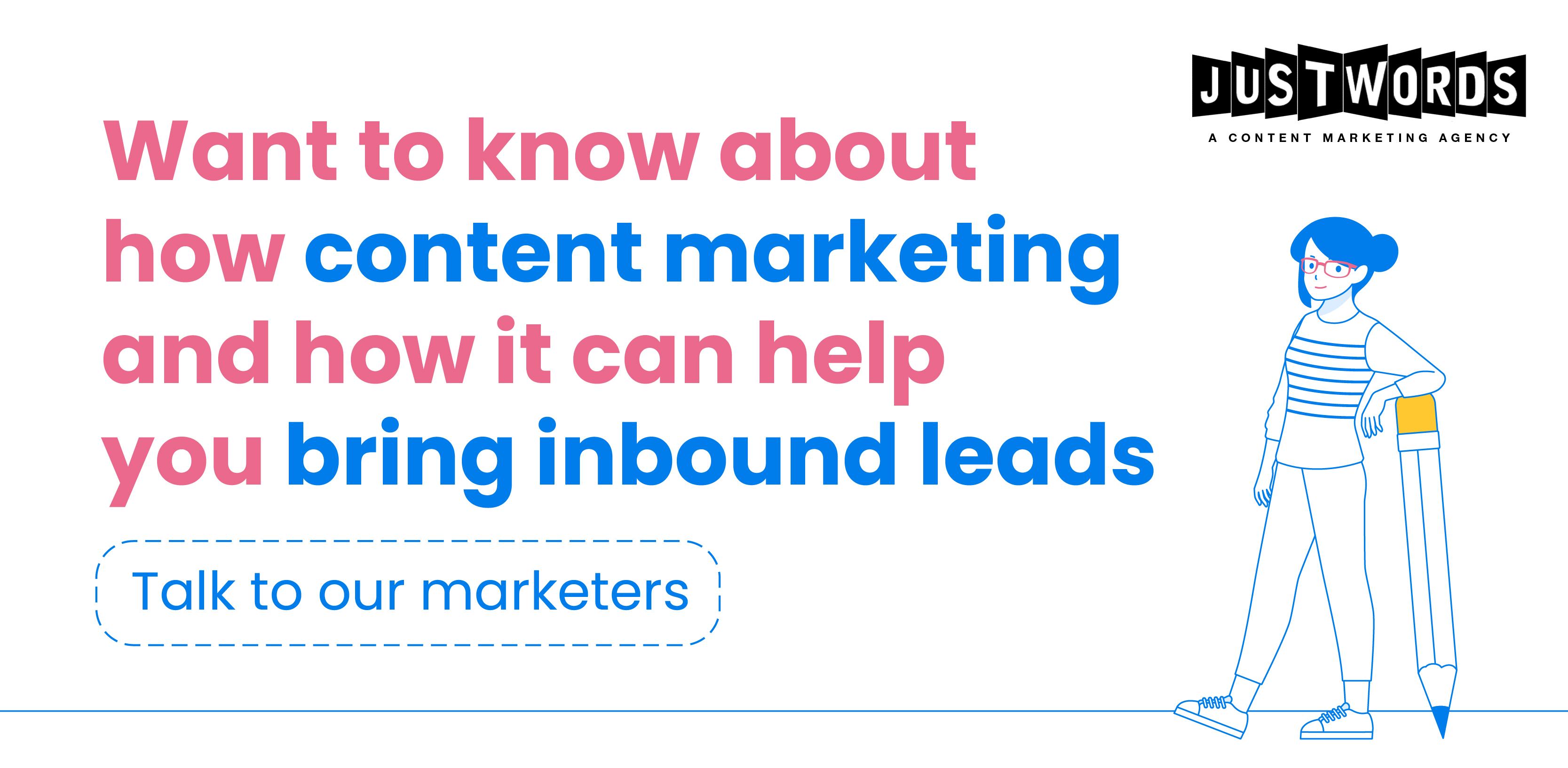We’ve all dreamt of being our own boss. Having a swanky office, a gifted team, innovative work and big clients, maybe your name on the masthead.
But for most marketers, these castles in the air don’t anchor to firm ground.
Why?
It’s not because they lack talent, or that they don’t know where to start. There’s just too much competition before you make it as the cream of the crop. As brands set aside bigger budgets for digital advertising, it’s natural for everyone to want a piece of the client cake.
There’s not much investment you need to start an agency. If you know your stuff, it’s actually quite simple. Working from home is easier than ever, and there’s little overhead costs. It’s landing—and holding onto—your first clients, that becomes difficult. But when has the road to success ever been a straight line?
Little orange traffic cones can show up in the form of late nights, endless meetings, and countless rejections. But don’t dwell too long on these issues. If you have the drive, the passion, and the will to succeed, anyone can make it.
Here’s our no-frills guide to get you started:-
1. Identify your niche, and build on it
It sounds like a good idea to offer different services to clients. More options equals more projects, right?
Wrong. This is not the best approach when you’ve just started out. Reputed agencies will already be offering integrated digital marketing solutions—as the fresh young thing, you have to find ways to stand out.
Draw on experience and domain expertise. Identify your core competencies and build a market reputation in that segment. Advertisers starting an agency could focus more on creatives and design, while SEO experts might push forward based on their ability to reel in traffic.
If you’ve worked in hospitality, your new digital marketing agency could offer custom solutions in food, travel and hotels. This narrows down your audience, weeds out competitors, and shows clients you know what you’re doing. Once you’ve built up enough testimonials and have a stable cash flow, you can gradually expand your niche. Always pick quality over quantity—remember, Amazon started with just books!
Don’t waste precious earnings on renting offices or hiring too many people. Instead, set up a talented network of freelancers with only a few core staff on the payroll. Scale up as needed, but don’t skimp out on essentials like SEO experts or web developers. That’s the beauty of digital—all you need is talent, computers and good Internet to get started.
2. Your first client gets the ball rolling
From cold calling prospects, to attending seminars and conferences to build your network, to generating leads through SEM, go all out when it comes to bagging your first few brands. Don’t go for big names—they probably have a long-term agency partner—and be open-minded about the businesses you want to bring in. Focus on startups who need help getting their operations off the ground. Give a solid sales pitch to break the ice, and maybe throw in a freebie or two.
As you spread the word, it’s the unforeseen meet-ups that give you your first client. Don’t forget to tap into social Media channels. You’re just starting out, so people won’t come to you. Get ready to draw attention instead!
3. Know what you’re doing
At the end of the day, it’s the business leader who pulls in the big bucks. Their knowledge of sales, combined with soft skills, will determine a company’s path—no matter how good the supporting staff are.
As the face of the company, people’s opinion of you will affect agency perception. Your corporate communication—or even informal chats—must be crisp, clear and convincing. Brush up on latest trends and competitors. Don’t talk fluff. Your clients are probably testing out multiple agencies, and you must win their trust. Nobody will buy your services without the assurance that the CEO knows what they’re doing.
Also Read: Incredible Blogging Stats to Inspire You to Blog
4. Have a system in place
Creativity runs wild, but it needs policies and procedures to keep things in check. Your agency must have a uniform process while tackling any project. Right from converting leads into customers, to handing over the last deliverable, a clear-cut workflow must be in place. Who handles sales calls? What is the turnover period? Who manages client accounts and daily reports? How many revisions can brands ask for? Equip your team with all company guidelines, so that they don’t have to consult you for every step.
5. Mix marketing chops with technology
If you want to grow as a digital marketing firm, you need the right tools to get work done. Project management software, team communication apps, keyword research platforms or social media know-how—get tech that streamlines your tasks and helps you work smart.
Project management tools like Asana, Trello and Basecamp organise all work communications in a single place. Teams can report their progress as you assign and track tasks, as well as chat and share documents from a single window. This works wonders if you don’t have a physical office yet.
Similarly, social media tools like Hootsuite and Buffer let you manage and analyse multiple channels from one place. The automation helps prevent confusion and mistakes if you’re handling many clients at the same time.

6. Be involved in the system
Try to know every inch of your daily operations. Branding yourself as an expert digital marketer? You should be able to show that when clients start asking questions.
Don’t micromanage your team, but be involved in their projects. Monitor their approach, suggest changes, and step in where necessary. Communicate regularly with clients and make sure to incorporate feedback. Over time, it gives your team a better idea of what to do for each account.
7. Focus on customer experience
Business isn’t just about sales. The customer’s journey and overall experience is what builds the bottom line. Treat customers with value and respect, and strive to offer them the best. Keep their interests in mind, and focus on building relationships. If the customer isn’t happy about something, work on resolving it.
Yes, you can go the extra mile to make them happy. But don’t say yes to everything. Set manageable expectations, and deliver on them. Happy customers will spread the word about you, recommend you to others in their network, and leave genuinely positive reviews.
Be proactive with clients, and be prepared for some back and forth. Don’t pick up too many brands, fail to meet their targets, and then drop them for your next roster—this creates an unhealthy cycle.
Also Read: Tips to Protect Your Business from Coronavirus
8. Invest in the right people
No business can function as a one-man army. Sooner or later, you’ll need a team to help manage core activities. To make sure it’s a crew you can count on, spend enough time on the hiring process.
Look for the right qualifications, skills and experience. Technical knowledge isn’t enough—the right attitude matters. Your first team will eventually form the top management. Hire judiciously. Don’t just eye top talent, but take on younger individuals with a zeal to learn. You need passion as well as commitment, and people who want to grow alongside the company.
9. Don’t rest on your laurels
Once you taste success, it’s easy to become complacent. But if you want to reach the stars, no amount of success should feel like enough. Keep pushing personal boundaries to work harder and deliver better service to clients. Their growth trajectory should be as good as yours.
You can’t build a successful digital marketing agency overnight. To get there, content marketing must become a way of life.
Frankly, in the early days, you’ll have more hits than misses. But the rewards—happy clients, awards, industry repute—will make it worth it in the long run. Stay patient, and learn from your failures. Course correct as needed, and it’s sunny days ahead!
Want to know about how content marketing and how it can help you bring inbound leads. Talk to our marketers.





